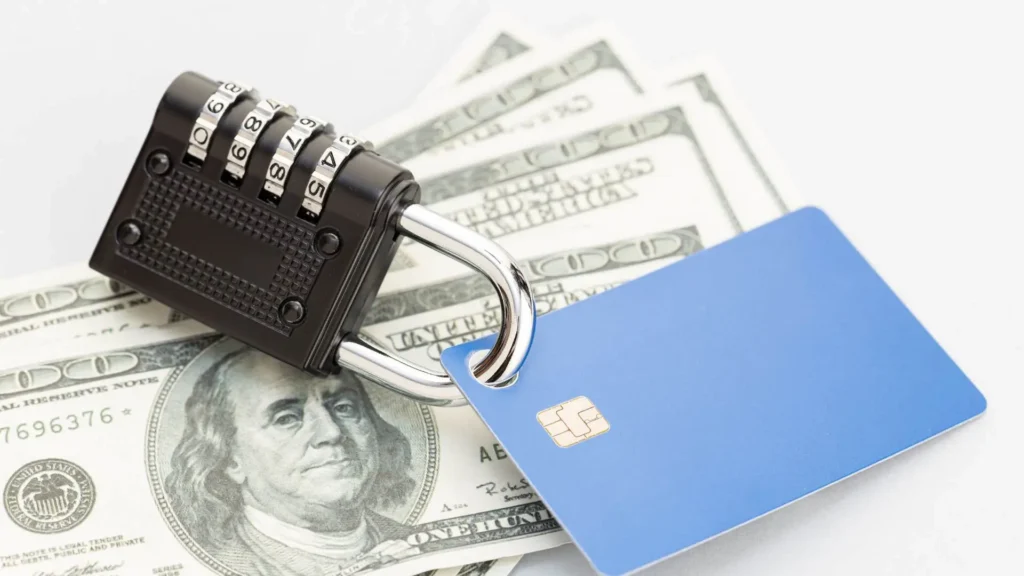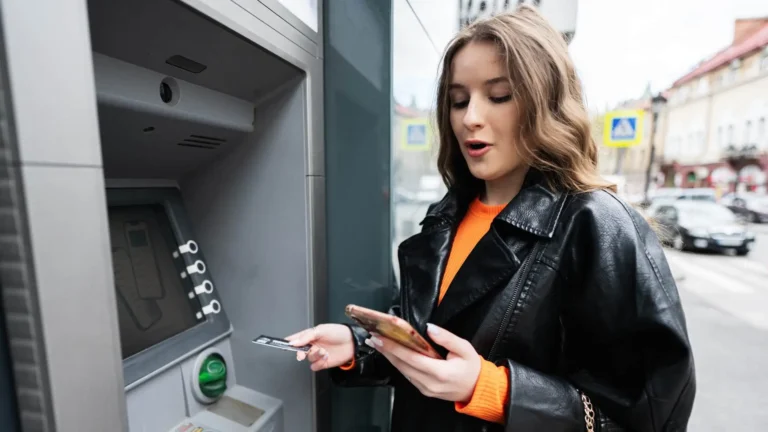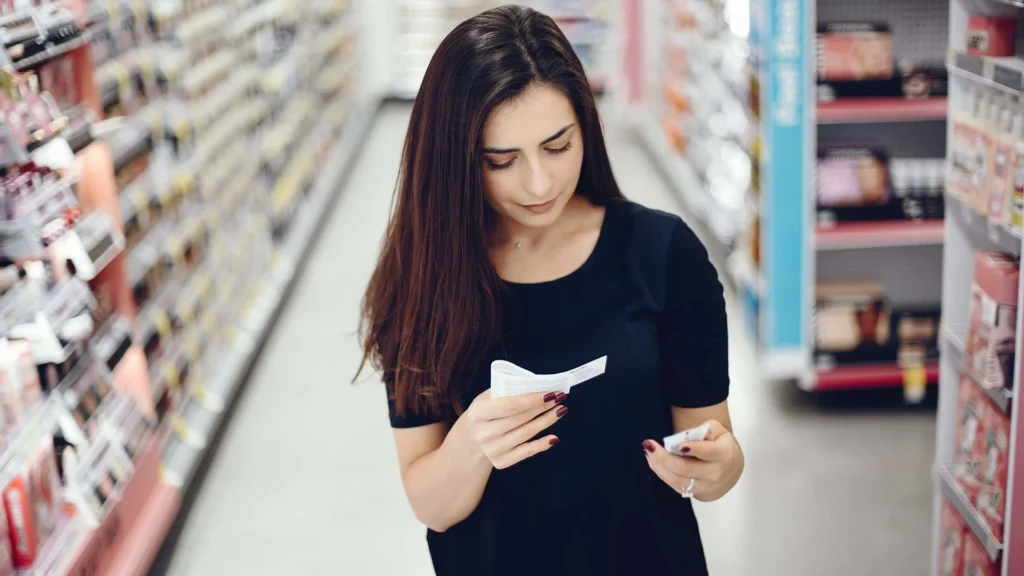Picture this: you want to make a big purchase, or send some money, and before you even tap, you find here’s your bank account is locked. You never saw it coming, and now you’re trapped. This is very stressful when you need your money.
Usually, it’s not your fault. Your bank may have seen something unusual, or you might have entered the wrong password too many times. Sometimes, unpaid bills or missing info lead to this. Banks lock accounts to protect them, but the situation can be maddening if you don’t know what to do.
That’s why this blog will help you to know how you can avoid getting locked out of your bank account. You’ll learn simple ways to keep your account safe and open whenever you need it.
Read: How to Choose the Right Bank Account for Students
Common Reasons Bank Accounts Get Locked
Ever wondered why some people suddenly can’t use their bank account? It can happen to anyone, even students. One small mistake or missed detail is enough to get your account frozen. No need to worry! Here are some common reasons to help you avoid this situation.
Suspicious Transactions
If you buy something expensive or shop from a new place, your bank might think it’s fraud. To keep your money safe, they may freeze your account until they confirm it’s really you making the purchase. Always inform your bank before making big or unusual payments.
Unpaid Bills or Loans
If you miss paying your loans, bills, or credit card balances, your account can get locked. In some cases, banks act on court orders and freeze your account. Paying on time isn’t just a good habit; it keeps your account open and your credit safe.
Wrong or Old Information
Using outdated contact details can lead to problems. If your bank is unable to contact you, it might want to freeze your account as a security measure. Keep your contact details current so that you do not encounter problems.
Not Using the Account
If you don’t use your account for a long time, the bank may see it as inactive. They might lock it to prevent fraud. Making a small transaction every few months can keep it active.
Interesting Read: How to Avoid Bank Fees as a College Student
Mistakes in Your Paperwork
A simple error, such as a misspelled name or incorrect date of birth, can confuse. If your paperwork doesn’t tally with the bank’s records, there’s a possibility they’ll freeze your account. Whenever you invest, no matter what you’re opening or updating your accoun,t be skeptical.
Security Alerts or Hacking Attempts
If someone attempts to log into your account from another device or location, the bank might think it’s a hack. They’ll also be freezing your account to protect you. And, of course, make sure you have a strong password in place, and consider two-step verification for added security.
Tax or Legal Trouble
If you are in debt to a creditor or involved in a legal case, your creditor might send your bank instructions to freeze your bank account. Though this is rare, it is possible. If you’re in this position, consult with your bank, a legal assistant right away.
Missing Documents or KYC Issues
Banks require you to complete KYC (Know Your Customer) forms. Ignore it, or fail to submit, and your account can be locked. Reply to those requests and submit the documents in time.
Proactive Steps to Prevent Account Lockouts
Being locked out of your bank account is stressful and annoying. The good news is, you can prevent that from happening by being wise with a handful of minor habits. Here are tips to follow to help you maintain your account safe:
Check Your Bank Account Regularly
Look at your bank account two or three times each week. This helps you notice missing money or payments you didn’t expect. If something seems not right, it’s better to report it early so you don’t have a larger problem. Keep a watchful eye on your spending and balance to keep your cool.
Keep Your Contact Details Up to Date
Your bank sends alerts to both your phone number and email. If you change your number, email or move address, let your bank know. Old contact information can cause you to miss crucial updates. Keeping your information up to date means your bank can get in touch with you when necessary.
Inform Your Bank Before Big Payments or Travel
Tell your bank before you travel or splurge. Banks watch for spending, and strange payments can get you frozen out of your account. Educating them helps them to understand what you are doing and also keeps your account on track.
Pay All Your Bills and Dues on Time
It is important to pay bills and loans promptly. You can block your account for missing payments or be taken to court. Schedule alarms, calendar reminders, or automated payments to prevent plans from slipping your mind. It will build trust with your bank and prevent later problems.
Use a Strong Password and Two-Step Login
A strong password guards your account. A combination of letters, numbers and symbols is best. Also, you can opt for two-step login for some extra security; you’ll get a code on your phone whenever you log in. This extra layer serves as a deterrent to hackers.
Be Careful With Your Personal Details
Do not share your bank password, PIN, or OTP. Even if someone claims to be from your bank, double-check before you share. Scammers have many tricks, so don’t share any information. When you protect your information, you keep your money safe and your account secure.
Avoid Using Free Public Wi-Fi for Banking
It’s convenient to connect to free Wi-Fi in coffee shops or malls, but not secure for banking. These networks can be hacked. Use data from your phone or a home network you trust to check your account. A VPN can also provide extra security.
Keep Your Business and Personal Accounts Separate
If you earn money or have a small business, open at least a business account. It’s easy to become confused and careless when personal and business money get mixed up. Two accounts make it easier to manage everything and keep your records straight.
For information on setting up emergency funds, read How to Build an Emergency Fund on a Student Budget

Leverage Technology and Alerts
Whether you realize it or not, technology plays a role in protecting your bank account. With a quick tap or two on your phone, you can monitor spending, stay updated, and avert problems. Here are some smart ways to use tech:
Get Notified About Large Transactions
You can also get alerts whenever someone makes a large payment using your account. This helps you know right away if someone else is spending your money. If it wasn’t you, you can quickly contact the bank and stop it before it gets worse.
Catch Suspicious Activity Early
If your bank sees unusual spending, such as purchases in other cities, it alerts you. These alerts can be an effective early warning for fraud. Just check the message and act fast if something seems off.
Use Your Bank’s Mobile App
Check your account anytime with your bank’s app. There, you can see your balance, monitor your spending, transfer funds and block your card if necessary. It’s an easy way to keep in real-time touch.
Set Up Payment Limits
Some apps let you set daily spending limits. This helps control your spending. If someone tries to spend over the limit, the bank will block it and alert you.
Enable Spending Controls
Many banks offer tools to manage your card usage. You can decide whether your card functions online, in stores, or while traveling abroad. Disabling options you do not use makes your card more secure.
Check this out: Why Every College Student Needs a Financial Safety Net
Technology is smart and easy to use. Just a couple of clicks can keep your money safe — and your mind at ease. So let’s take a few seconds to set these up.
What to Do If You’re Locked Out
It’s frightening to lose access to your bank account. You might feel stressed when you need your cash. But keep calm. You can take steps to fix the issue and protect your funds. Here’s what to do:
- Reach out to your bank the moment you spot the lock. Ask why it happened and follow the steps they give you so you can get back in fast.
- If your bills are set to pay automatically, stop or switch the card for a while. This simple move stops late fees or service shut-offs while the bank locks your account.
- Gather all important documents. The branch might need ID, a recent bill, or other proof of who you are. Having everything at hand speeds things up.
- Frequently check your emails and voicemail messages. You can expect the bank to contact you with updates or instructions.
- If the lockout stems from unpaid loans or legal woes, communicate with the people you owe. Honesty can be responsible for reaching solutions faster.
- While you wait, do not try to log in repeatedly. Several unsuccessful attempts can cause a delay in unlocking or additional security measures.
- If you are confused, seek the advice of a responsible adult, family member, or a lawyer. It’s better to know about your options than to guess.
Conclusion
When money is tight and you need it fast, getting locked out of your bank account can cause a lot of worry. With a couple of smart habits, you can keep your account secure and available.
Simple precautions, such as employing robust passwords, setting up alerts and communicating regularly with your bank, go a long way. Better to be prepared than to panic later. These little steps are crucial to staying on top of things and not getting surprised.
Apps like Blitz Money help as well. It provides you with instant access to your cash without having to go through the hoops. Blitz, keeping you prepared, confident, and ahead of everything.




